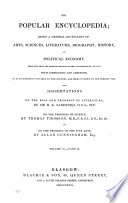 | Sir Daniel Keyte Sandford - Art - 1841 - 510 pages
...Understanding their mother to signify the earth, and her bones the stones, they didas the oracle directed. The stones thrown by Deucalion became men, and those thrown by Pyrrha became women. Many other circumstances are related by the ancient writers concerning this deluge, which bear a resemblance... | |
 | Publius Ovidius Naso - 1838 - 344 pages
...injunction which, upon consideration, they discovered to refer to the stones of the earth. Accordingly, the stones thrown by Deucalion became men, and those thrown by Pyrrha became women. The whole of Ovid's description may be advantageously compared with the narrative of Moses. See Deucalion.... | |
 | George Ripley, Charles Anderson Dana - Encyclopedias and dictionaries - 1859 - 814 pages
...Construing this to mean the earth, they threw behind them the stones gathered from the surface. Those thrown by Deucalion became men, and those thrown by Pyrrha became women. The Mexicans are described by Humboldt as having, with many of the rude nations of the new world, their... | |
 | American cyclopaedia - 1859 - 790 pages
...Construing this to mean the earth, they threw behind them the stones gathered from the surface. Those thrown by Deucalion became men, and those thrown by Pyrrha became women. The Mexicans are described by Humboldt as having, with many of the rude nations of the new world, their... | |
 | Virgil - 1878 - 326 pages
...throwing behind them the bones of their great mother, fe the stones they might pick up on the ground. The stones thrown by Deucalion became men, and those thrown by Pyrrha became women. Vacuum, in consequence of the deluge. Orbem, world. 63. Nati (sunt). Durum genus, because born from... | |
 | Elwood Worcester - Bible - 1901 - 642 pages
...supplicated offspring. According to the command of Zeus, he took up stones and threw them over his head. And the stones thrown by Deucalion became men, and those (thrown) by Pyrrha became women. From this came the expression laoi, for people or nations, because they sprang from stones (loot).*... | |
| |